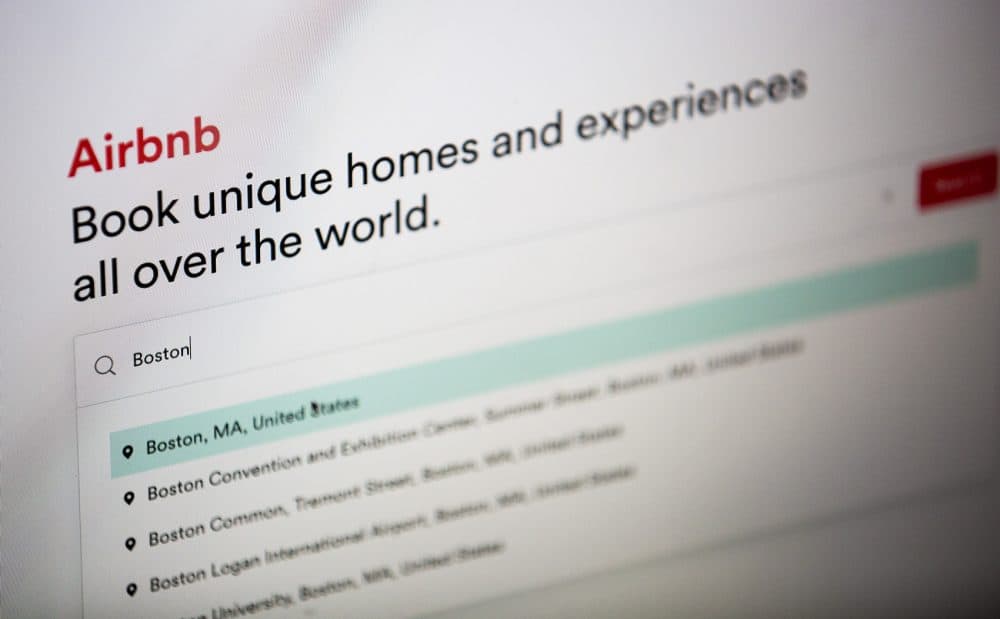Advertisement
New Short-Term Rental Rules Take Effect In Boston

If you rent out your home on websites like Airbnb or HomeAway, you now have to register with the city of Boston.
A new ordinance to regulate short-term housing rentals goes into effect in Boston Tuesday. In addition to the registration requirement, the ordinance also bans people from doing short-term rentals in units they don't live in (aka investor units).
"It effectively closes corporate loopholes that had existed when companies were taking up entire buildings, displacing all the tenants and operating de facto hotels where hotels would be illegal under the zoning code," Boston City Councilor Michelle Wu said in a phone interview.
The city believes so-called investor units have siphoned off much-needed housing in Boston. Wu, who has led efforts to regulate short-term rentals, said there's "anywhere from 2,500 to 4,000 units that could be returned to the residential housing stock."
"That would really have an impact in relieving pressure on housing prices and increasing the supply," Wu said.
The ordinance, which was approved in June, does allow people to rent out units they live in and own on a short-term basis (renters are barred from operating short-term rentals). This includes a room within a unit, an entire unit or an adjacent unit in a two- or three-family home. There are annual registration fees for such short-term rentals. Also, hosts face fines if they don't comply with the new rules.
The city ordinance is only partially in place, however, as some key parts of it are being held up in court due to a lawsuit filed by Airbnb. The company took issue with a requirement that short-term rental companies share data with the city and a $300-per-night fine for each illegal listing they host. In its lawsuit, Airbnb called the provisions "draconian" and argued that they violate state and federal laws. For now, the enforcement of those fines and data-sharing rules are on hold. Airbnb declined to comment further on the lawsuit.
The (partial) implementation of Boston's short-term rental rules starts just after major legislative action at the state level. Last week, Gov. Charlie Baker signed state legislation to tax and regulate short-term rentals. Wu said the state bill, which will also create a statewide registry and database, bolsters what the city is trying to do with data sharing rules at the local level.
Mayor Marty Walsh also praised the state bill.
"With this state legislation, Boston looks forward to implementing our ordinance on January 1 and adopting additional complementary tools provided by the state," Walsh said in a statement.
The state bill goes into effect July 1 and gives cities and towns the ability to impose their own regulations on short-term rentals — or ban them altogether.
